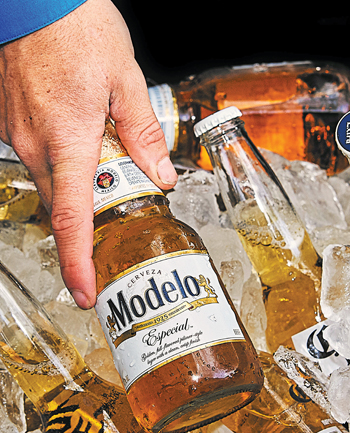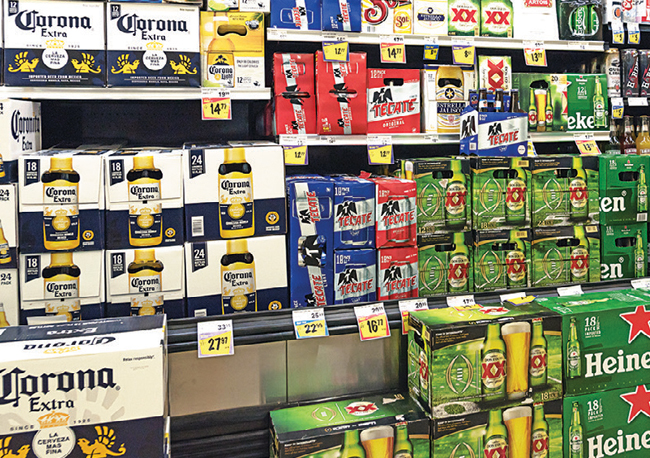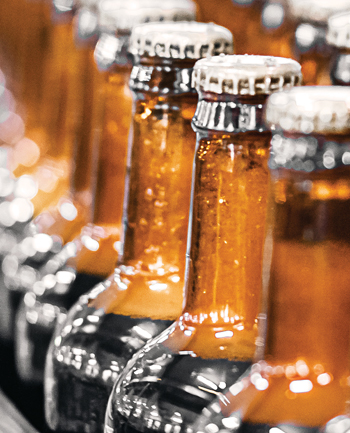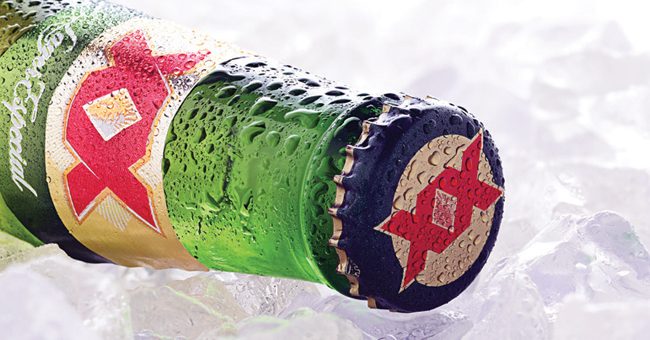Driven by Recovery in Mexico, Beer Imports Continue to Grow
While many beer segments have struggled to keep up with the high off-premise sales performance that characterized 2020, imports have found a way to grow.
Through early September, imports (+3.1%) were among only a few segments, aside from hard seltzers (+15.3%) to post off-premise dollar sales growth year-to-date in NielsenIQ tracked retailers — and all while they are compared against a highly unusual year-over-year comparison due to the pandemic.
Total import volumes increased +16.8% year-to-date through July 2021, according to the Beer Institute (BI), a national trade association. Mexico led total imports by volume, growing +18.4% YOY as of July, followed by the Netherlands (+7.2%), Belgium (-13.9%), Canada (+4.5%), and Ireland (+46.9%). The top 10 import countries were rounded out by Germany (+18.3%), Poland (+401.9%), Italy (+112.3%), Jamaica (+22.1%) and the United Kingdom (+12.6%).
The overall segment continues to be driven by Mexican imports, which grew +2.6% in July compared to July 2020, according to the BI. The growth is a stark improvement from the spring of last year, when beer production in the country was deemed non-essential by the Mexican government, and many top import brand families suffered production stoppages and delays.
“We are a bit lighter on inventory than we would normally be during this time of year. And that really is primarily predominantly driven by continued robust demand, particularly for our core Mexican beer portfolio,” Garth Hankinson, executive vice president and chief financial officer at Constellation Brands, said at Barclays Global Staples Conference on September 8.
Hankinson emphasized throughout his conference update that Constellation plans to lean its medium-term growth on its Mexican beer portfolio — which includes Modelo, Corona, and Pacifico — adding that any of its various forays into hard seltzer will be additive to that growth.
Constellation reported $6 billion in net sales for 2021 in its latest full-year earnings report — an 8% increase from 2020. While Anheuser-Busch InBev took control of Grupo Modelo in 2013, it had to divest the company’s U.S. business to Constellation after regulatory concern. Modelo was the third best-performing beer brand family in total U.S. multi-outlet and c-stores sales for the 52-week period ending August 8, 2021, according to IRI, a Chicago-based market research firm. The Modelo brand family also held a 7.5% dollar share of the U.S. off-premise beer market.
Additionally, Modelo Especial ranks as the third best-selling beer in the U.S., — and in-turn the No. 1 imported brand — with more than 85 million cases sold off-premise in the last 52 weeks ending August 8, 2021, according to IRI.
Hankinson credited the growth of the brand to Constellation broadening Modelo’s consumer base outside of Hispanic consumers — a change the company began about five years ago. At that time, Hankinson said 80% of Modelo drinkers were Hispanic. Now, 55% are Hispanic, while 45% are more of the “general market.”
“This is an important opportunity for us because the non-Hispanic households represent about 85% of the U.S. population, so it’s a big chunk of consumers to go after,” he added.
Even with its dominance, Hankinson said Modelo Especial still has room to grow, both in what he calls “simple distribution” (getting the product on a shelf) and “effective distribution” (getting the product in the right shelf or cold box placements in retail outlets).
“Modelo Especial is now the No. 1 imported brand in the U.S., but it’s still not as fully distributed as Corona Extra,” Hankinson said. “From a household penetration perspective, while it’s increased over the last few years, it’s still only about 75% of what Corona’s household penetration is. So, again, leaving a lot of runway for growth.”
To help support this growth, Constellation will build a new brewery in the southeastern part of Mexico, which was approved by President Andrés Manuel López Obrador in late May. The news came one year after Constellation was forced to halt construction on a brewery in Mexicali, after the $1.4 billion project was rejected by voters, who argued construction prioritized beer for Americans over limited water resources for the region.
“Consistent with our previous statements on this topic, we continue to engage in constructive discussions with the Mexican government as it relates to our long-term plans for production in Mexico,” a Constellation spokesperson said in June. “Together with government officials, we’re exploring options that include finding an alternative location in the southeast region in Mexico that has adequate water supply and a skilled workforce.”
The Corona brand family is the No. 2 imported brand family in the U.S., and ranked just below Modelo with a 6.34% dollar share of the off-premise U.S. beer market, according to IRI. Heineken (2.07% dollar share) is the third best-performing import brand family and 11th best selling overall beer brand, followed by Dos Equis (No. 15) and Stella Artois (No. 17).
Meanwhile, the world’s largest beer manufacturer is taking a different approach to its biggest imported brand in the U.S. In February, A-B announced a $1 billion investment over the next two years in its U.S. facilities to “help drive the country’s economic recovery.” As part of this investment, the company has begun to transfer the production of its Stella Artois offerings to the U.S., citing “the instability of the international supply chain.”
The transition kicked off earlier this year, with production of Stella’s 11.2 oz. bottle as the first to move facilities. Cans and draft are on track to transition to U.S. based brewing before the end of the year, according to Peter Van Overstraeten, VP of premium and super premium USA at A-B.
“Shifting production to the U.S. for our American consumers reaffirms our commitment to ensuring our consumers can continue to enjoy the same Stella they know and love, and results in a substantial investment in facilities across the country,” Overstraeten told Brewbound.
“As a Belgian myself, I’m proud that Stella is beloved around the world,” he continued. “While Stella Artois bottles produced in the United States will not be classified as an import, we believe what really matters is providing our beer lovers with their favorite refreshing, premium lager brewed with uncompromising premium quality.”
Overstraeten emphasized that Stella’s signature three-ingredient Belgian recipe made with Saaz hops, malted barley, and water will not change with the production move. Production will be overseen by Isabelle Seunier, A-B’s head of research and development for North America, who is a Belgian global brewmaster, and will “work closely with the Stella Artois brewmasters in Belgium.”
While Overstraeten could not confirm any “firm plans” to create experiential or other on-premise spaces for consumers in the U.S., he noted the importance of the return of bars and restaurants to the Stella Artois brand.
“The restaurant and bar industry is at the heart of Stella’s identity,” Overstraeten added. “So we’re always looking forward to having a Stella Artois with our beer lovers on-premise.”


Receive your free magazine!
Join thousands of other food and beverage professionals who utilize BevNET Magazine to stay up-to-date on current trends and news within the food and beverage world.
Receive your free copy of the magazine 6x per year in digital or print and utilize insights on consumer behavior, brand growth, category volume, and trend forecasting.
Subscribe


